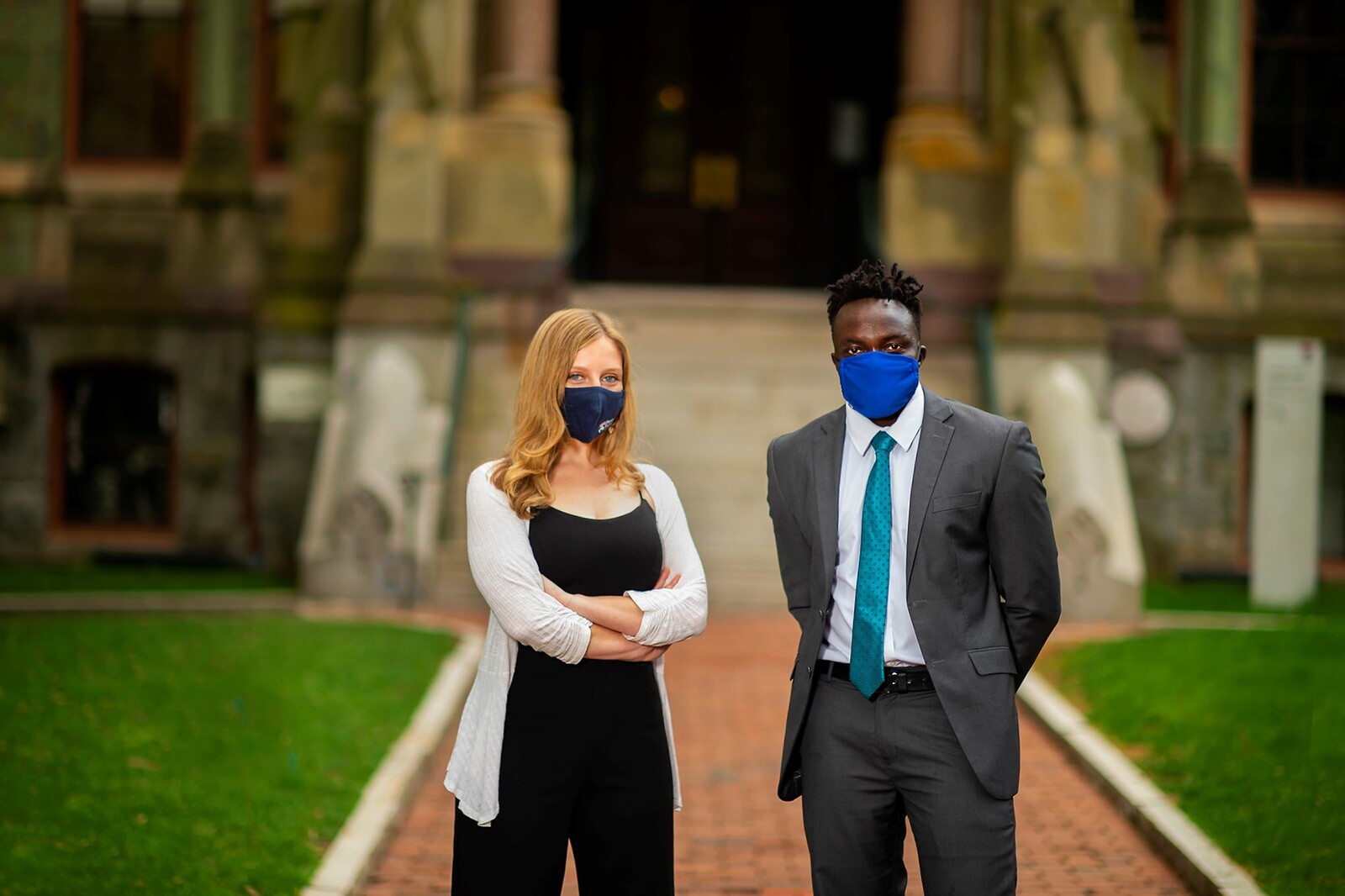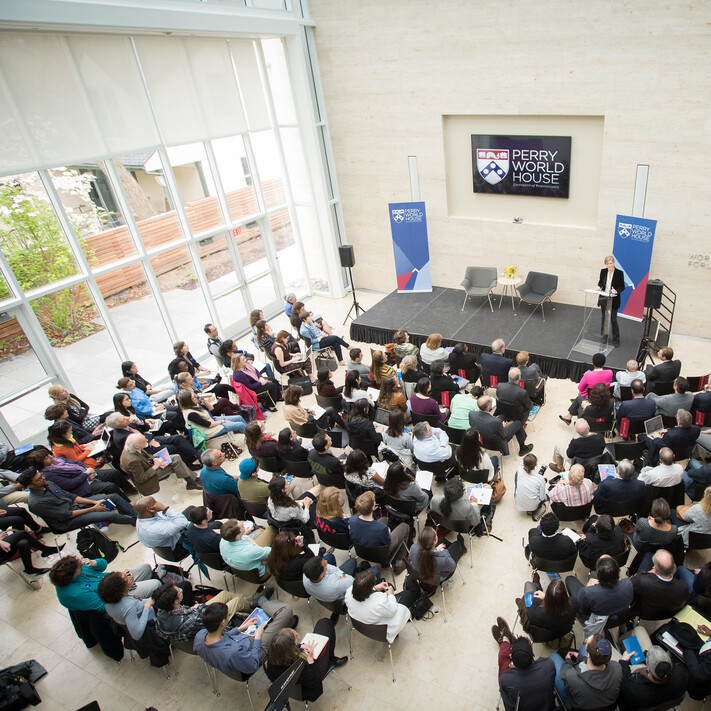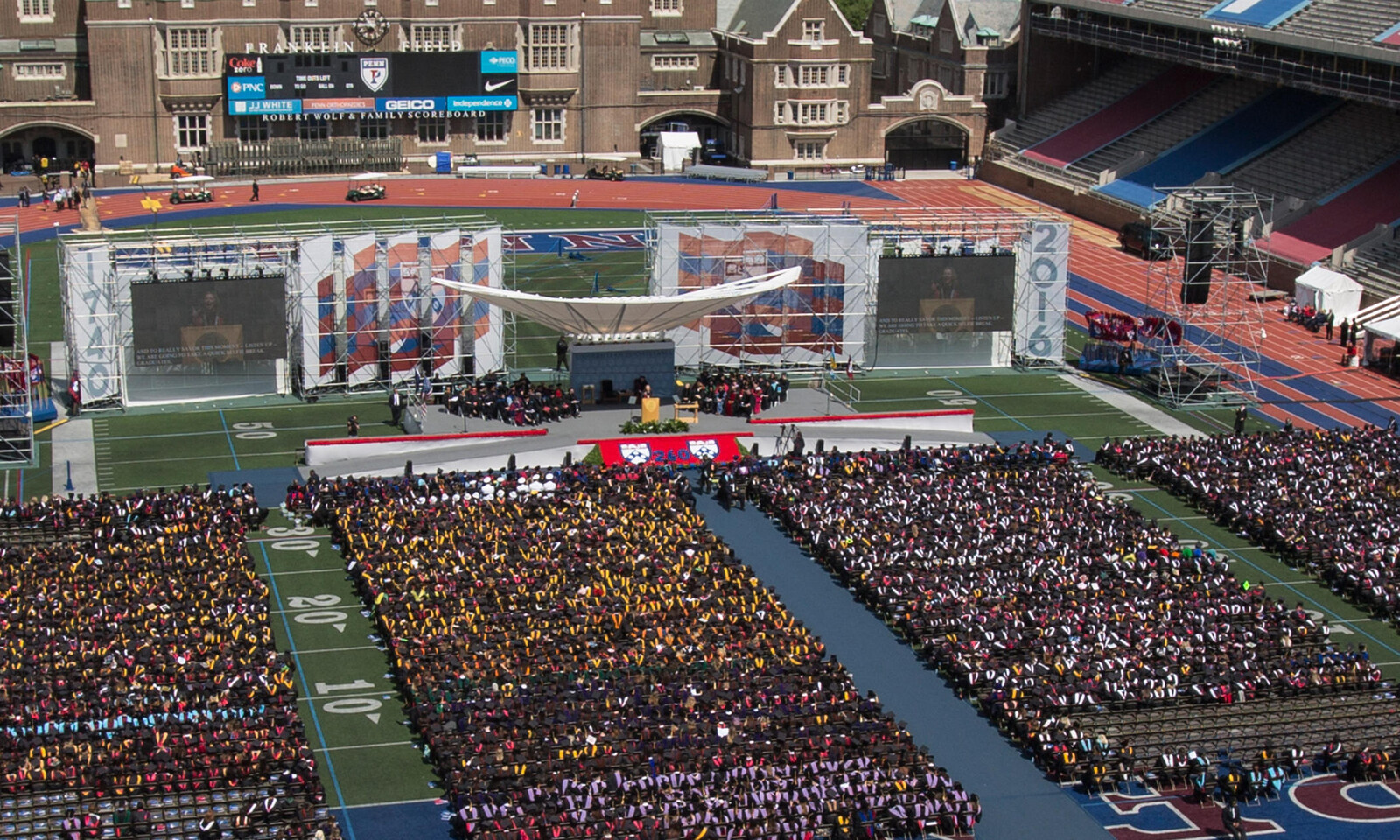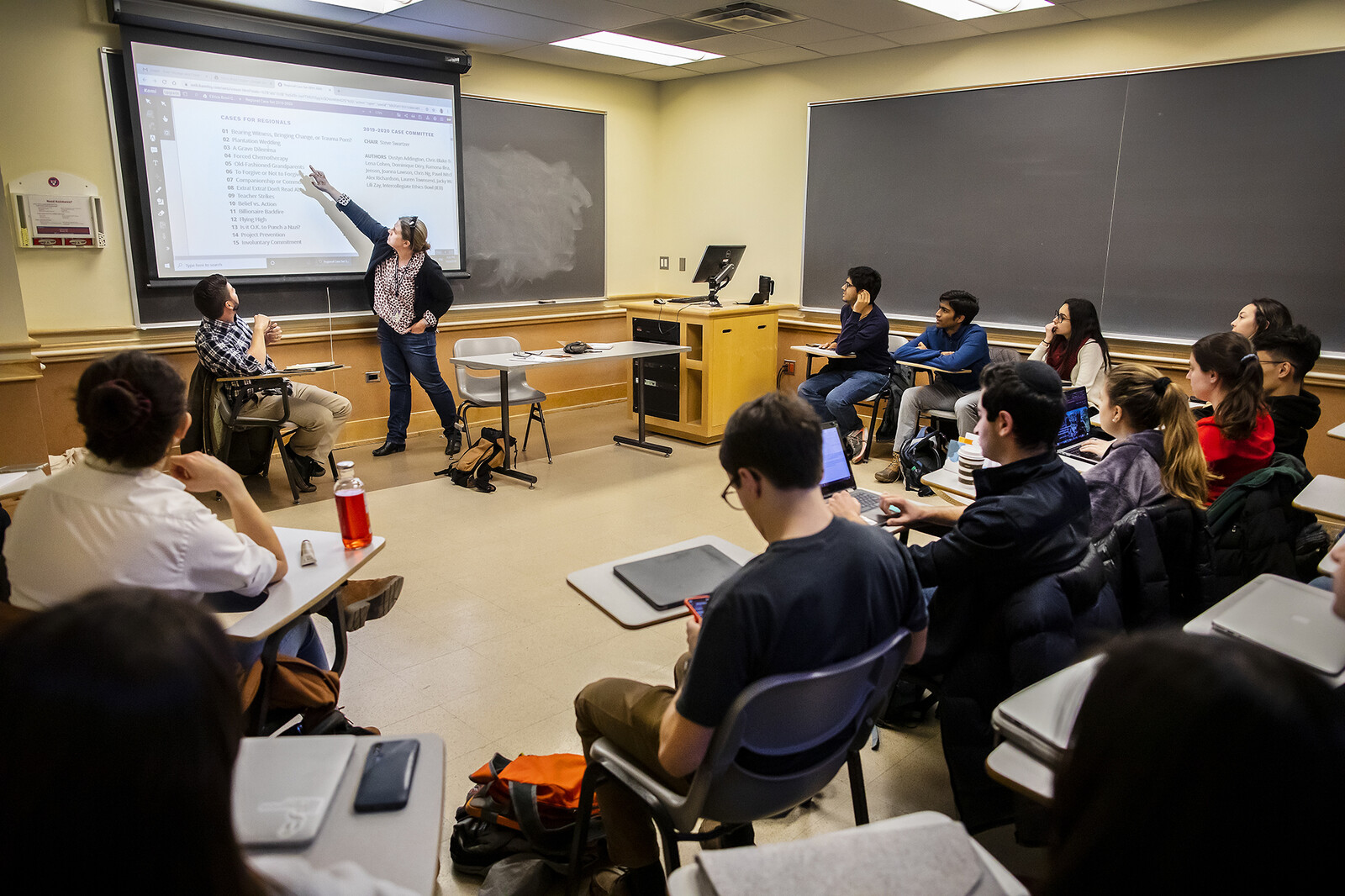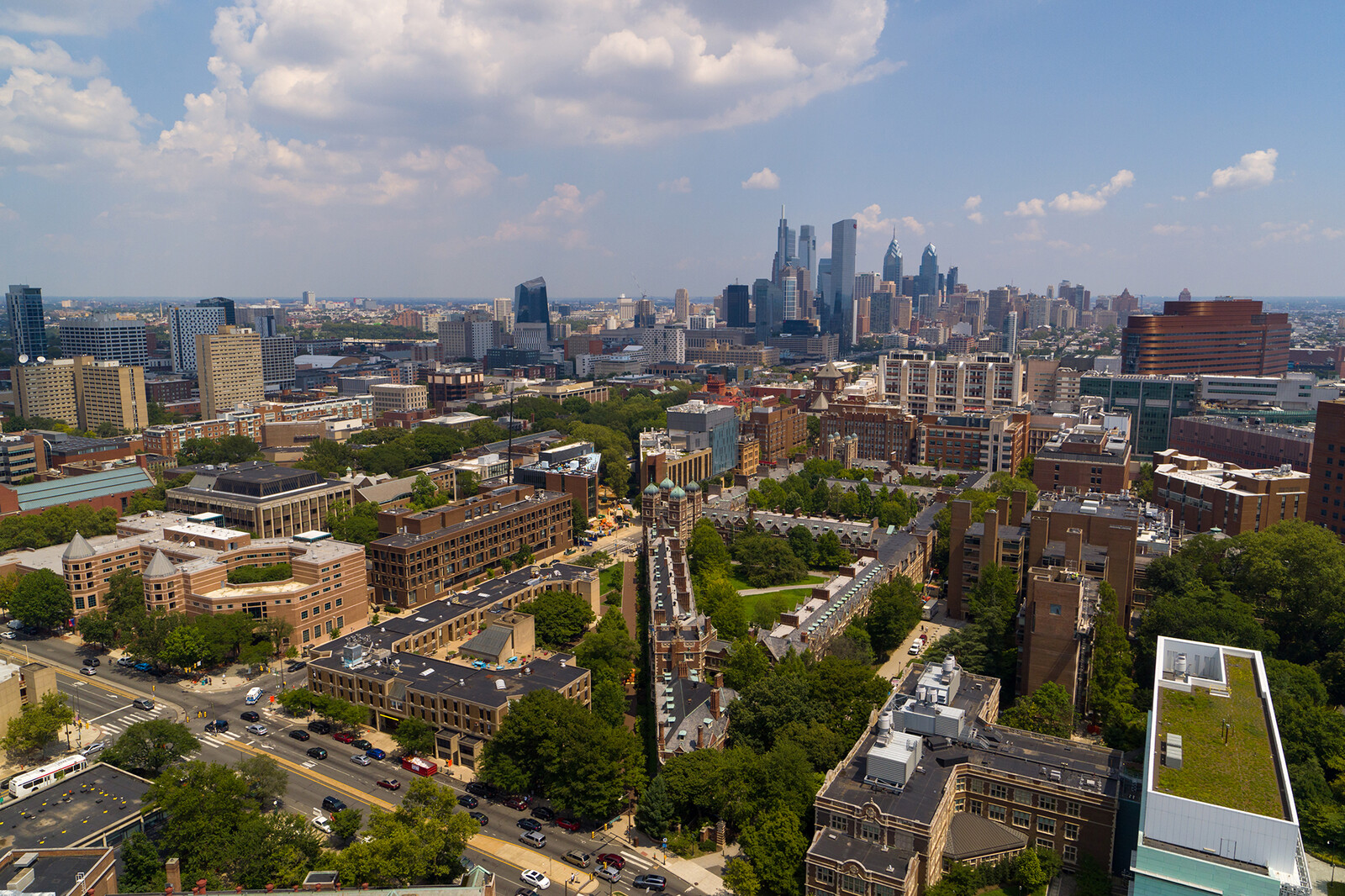The Penn Connects, Penn Connects 2.0, and now Penn Connects 3.0 road maps have included massive improvements of facilities and growth of green spaces on Penn’s contiguous University and medical campuses. Major initiatives and investments throughout the years have included the Perelman Center for Advanced Medicine, Roberts Proton Therapy Center, Smilow Center for Translational Research, Pennovation Works and the Pennovation Center, Penn Park, and the new Pavilion, a 17-story, 1.5 million-square foot, $1.6 billion hospital, which officially opened in early November 2021. The Division of Facilities and Real Estate Services directs Penn’s capital projects, which are on average $250 million annually. Penn encourages economic inclusion on all construction projects, with extensive opportunities for local residents, minority-owned businesses, and women-owned business to participate in its major capital projects.
Global engagement has been a centerpiece of Dr. Gutmann’s presidency, highlighted by the creation of the Perry World House on campus, the Penn Wharton China Center in Beijing, and the Penn Biden Center for Diplomacy & Global Engagement in Washington, D.C. New academic centers have also been established under Dr. Gutmann’s guidance, including the Penn Center for the Study of Contemporary China, the Andrea Mitchell Center for the Study of Democracy, the Kleinman Center for Energy Policy, and the Stevens Center for Innovation in Finance. In 2019, thanks to a generous gift from the Stavros Niarchos Foundation, the Penn Paideia Program was launched, placing a particular emphasis for students involved on wellness, citizenship, service, and dialogue across divides.
Dr. Gutmann has also championed Penn’s commitment to the arts, as much for students, faculty, and staff as for the community at large, supporting one-of-a-kind sites and programs on campus including the Penn Museum, Arthur Ross Gallery, Institute of Contemporary Art, and the Annenberg Center for the Performing Arts. The Sachs Program for Arts Innovation, supported by an endowed gift from Keith L. and Katherine Sachs, was recently established to provide grants and other forms of strategic support to artists, faculty, cultural centers, students, and other arts advocates at Penn, with a mission of connecting through art the University to the world at large.
